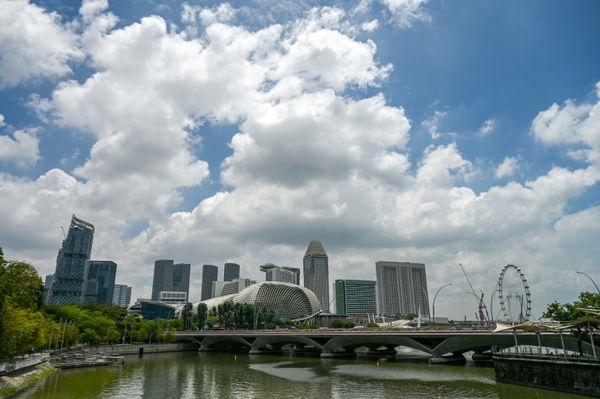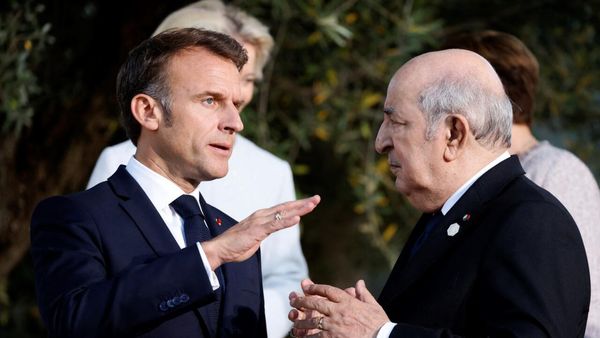
The lawyer of an autistic teenage boy who was charged with terrorism offences after being targeted during an undercover police operation says “the entire saga” has had an enormous impact on the child and his family.
Last week, Guardian Australia revealed the case of a boy known as Thomas Carrick, who was charged with terror offences after his parents contacted police asking for help with the 13-year-old’s fixation on Islamic State.
Thomas was charged with two offences in October 2021 but was granted a permanent stay two years later.
His lawyers, Sam Norton and Nick Jane, had not seen a case like it. A child had never been charged with the offences Thomas faced.
“It’s important to understand that [he was] on incredibly strict bail conditions for two years and the AFP tried to have his bail revoked multiple times in circumstances where they never charged him with further alleged offending,” Norton said.
“The impact on him and his family of the entire saga has been enormous.”
The Australian federal police has declined to answer questions about the case, as has the attorney general, Mark Dreyfus, who has portfolio responsibility for the AFP and the Commonwealth Director of Public Prosecutions (CDPP). The AFP confirmed, however, that a “range of reviews” on the matter were being considered.
Court documents regarding the case reveal details about the steps taken by police during the operation and the seriousness of the allegations against Thomas.
The documents paint a picture of a boy with complex needs and troubling behaviours for whom finding a friend was a notable achievement, and the vast counter-terror operation which swallowed him whole.
The documents also show authorities firmly believed the operation was necessary to quell a potentially deadly threat.
The case will again come under scrutiny this week, with the AFP scheduled to appear before Senate estimates on Tuesday.
Thomas was first reported to authorities by his primary school principal. Several months later, in April 2021, his parents went to a Victorian police station, and told officers they wanted help dealing with his fixation on Islamic State.
Over the following three months, he was provided therapeutic support as part of the contact his parents had with police, but also allegedly behaved in several ways that would later result in him being charged.
This allegedly included pledging allegiance to Islamic State on Twitter (now X), watching videos prepared by Islamic State on how to make a bomb and other extremist propaganda, engaging with a possible Islamic State recruiter online, and making references in a meeting with a Victoria police psychologist and the force’s Countering Violent Extremism unit to the 9/11 attacks as “cool”, wanting to build a bomb to detonate at Flinders Street station or a government building, and wishing to commit a school shooting.
On 29 July 2021, Thomas started speaking with an undercover operative online. The Joint Counter Terrorism Team, consisting of Victoria police, AFP and Asio officers, had decided the undercover operation could run in parallel with therapeutic efforts to change Thomas’s behaviour, a decision which was later heavily criticised by a children’s court magistrate.
The operative chatted with Thomas on 55 of the next 71 days, and 1,400 pages of online chats between the pair were later included as evidence in court.
In October 2021, Thomas was charged with being a member of a terror organisation between 16 April 2021 (the date his parents had approached police) and 6 October 2021 (the date he was arrested).
He was also charged with advocating terrorism between 19 September 2021 and 6 October 2021.
The commonwealth offences carried maximum penalties of 10 and five years respectively.
What followed was two years of pitched court battles between the CDPP and the boy’s lawyers. Only a selection of the decisions relating to those hearings have been made public.
Less than a month after Thomas was charged, the CDPP appealed children’s court judge Jack Vandersteen’s decision to grant him bail in the Victorian supreme court.
Its lawyers argued that Vandersteen should have found there was an unacceptable risk that Thomas would endanger the safety of a person or commit an offence if he was released on bail.
A detective senior constable told the court that Thomas’s family had disowned him, that Thomas was “into” knives, that he had talked about slitting the throat of a girl and talked about blowing up the school and specific teachers, and shared a belief that Thomas would eventually contact a genuine jihadist and “take up what is offered to him”, Justice Lex Lasry wrote in his judgment.
But the court also heard Thomas was unfit to be interviewed by police after his arrest because doctors had found he was too “suggestible”.
Thomas’s father said he had not disowned him; he wanted him home, and said that his son’s autism was the problem, and that his son lacked social skills and had a low IQ (the most recent court decision relating to the case lists his IQ as 71 but earlier decisions say it was as high as 74).
Lasry noted that youth justice prepared a report that said Thomas could be subject to supervised bail.
“Whilst the respondent’s adherence to extremist ideology and support for terrorist acts had persisted despite protective intervention from his parents, school, the police and child protection services, he had not taken any practical step to carry them out and the evidence supported a conclusion that the nature and frequency of interventions if bail were granted would enable the risk to be minimised to an acceptable level,” Lasry found.
In April 2022, the CDPP applied to have Thomas’s charges uplifted from the children’s to the supreme court, arguing they were too serious and complex.
Vandersteen noted that Thomas was subject to onerous bail conditions but that his compliance had been “excellent”.
He said the court could handle the serious charges, and disagreed the matter was complex, saying most of the brief “relates to typed conversations between [Thomas] and the [undercover operative]”.
Thomas’s bail was cancelled in July 2022 after Thomas was found to have breached his conditions by attempting to send an email and conducting Google searches on an iPad.
The searches included topics such as “10 ways to cover up a murder”. Police also alleged Thomas had bullied a fellow student, made threats about a student to a teacher, and seized a school workbook alleged to contain relevant images and notations.
Thomas was not allowed to use the internet, but police found Thomas had a handwritten note referring to his home internet IP address and password.
A month earlier, police had made another application for bail to be revoked, after alleging he had breached bail by conducting searches and having certain material on his computer while at school. The application was refused.
Thomas spent three months in detention, until a bail application was made by his lawyers before Vandersteen in October 2022.
Vandersteen noted that the prosecution had been ordered by the court to provide all relevant documents relating to the case, a process known as full disclosure, by 13 October.
But a lawyer appearing on behalf of the chief commissioner of Victoria police said they would fail to meet the court order, and would need another three to four weeks.
Vandersteen noted that disclosure “may lead to an application for a permanent stay”; a possibility which eventuated a year later, meaning that Thomas may have been cleared of the charges sooner had police complied with the court order.
Youth justice recommended supervised bail, and Jane argued on Thomas’s behalf that the breaches of bail had occurred in the context of Thomas struggling with social isolation, not having his academic needs met, and wanting to move schools.
The CDPP argued the factors being relied upon for the grant of bail – Thomas’s autism, youth and oppositional defiance – were the very factors that lead to the greatest risk.
The court heard there was evidence that if Thomas was not listened to, he would obtain a weapon and take action against someone, adding that he had clear views on violence and violence against members of the community, including having seemingly made a threat to rape a police officer who had been involved in the case.
“Youth Justice assess TC [Thomas] ‘as highly vulnerable to negative peer influence in custody due to his age, his complex mental health and disability diagnosis’,” Vandersteen found.
“In custody TC has been seen by staff to emulate the bad behaviour of others. TC has stated he does not want to engage in this behaviour in the future.”
Bail was granted on strict conditions. A year later, Thomas was cleared of all charges.
“The community would not expect law enforcement officers to encourage a 13-14-year-old child towards racial hatred, distrust of police and violent extremism, encouraging the child’s fixation on ISIS,” magistrate Lesley Fleming said in granting the permanent stay application.
“The community would not expect law enforcement to use the guise of a rehabilitation service to entice the parents of a troubled child to engage in a process that results in potential harm to the child.
“The conduct engaged in by the JCTT and the AFP falls so profoundly short of the minimum standards expected of law enforcement offices [sic] that to refuse this [stay] application would be to condone and encourage further instances of such conduct.”







